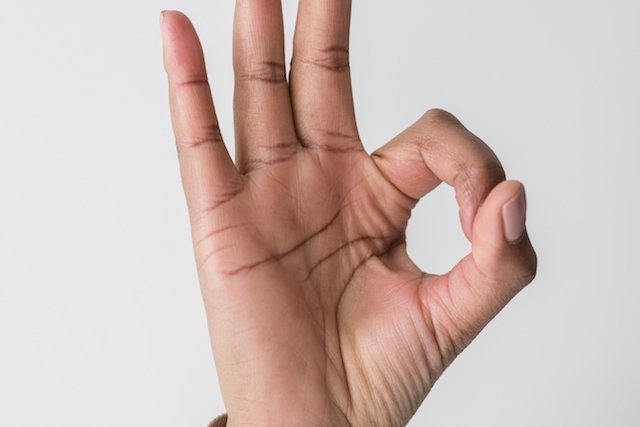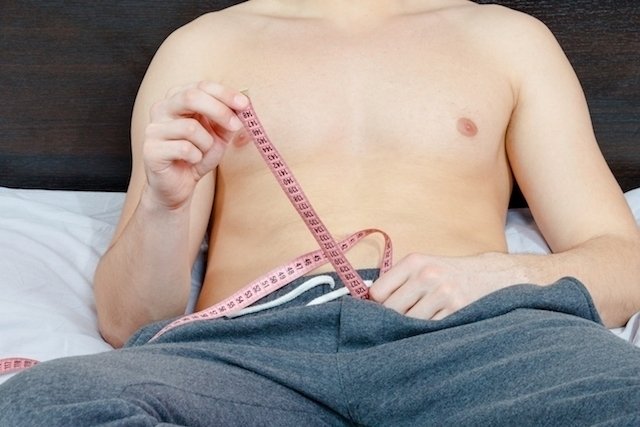The jelqing technique, also known as jelq or jelqing exercise, is a completely natural way to increase penis size that can be done at home using just your hands. It is, therefore, a more economical option to penis enlargement devices.
Although it is a very simple and painless technique, the jelqing technique has no scientific proof, and it is not possible to say whether it really works or not.
Furthermore, when the technique is performed incorrectly, it can increase the risk of injuries to the penis, pain and irritation, and it is important that the step-by-step instructions are followed and the technique is stopped as soon as the man feels any change or discomfort.

How the technique works
The jelqing technique is based on the fact that it allows increased blood circulation in the sexual organ, stretching the body of the penis and increasing its capacity to receive blood. However, there is no scientific evidence to indicate whether this technique works or not or how quickly results can be seen.
How to do the technique correctly
It is possible to try the jelqing technique, as long as the step-by-step guide is guided by a doctor.
To do this, the penis must not be squeezed too tightly, lubricant must be used and the organ must not be fully erect. The technique must be carried out in 3 phases:
1. Warm-up phase
The first step is very important, as it ensures heating of the tissues of the penis shaft, reducing the risk of injury during the remaining steps of the technique. Some ways to warm up include:
- Take a hot bath;
- Place a hot compress or towel on the penis;
- Apply a hot water bottle.
After warming up, the penis must be placed at a medium erection level, to allow more blood to enter the organ’s body. The ideal level is for the penis to be erect but not hard enough to penetrate, for example. Then, you can apply a little lubricant before starting the next phase, in order to facilitate the technique’s movements, cause less discomfort and avoid possible consequences.
2. Exercise phase
After completing the warm-up phase and reaching the correct erection level, you can begin the exercise phase, which includes:
- Hold the base of the peniswrapping it with the index finger and thumb, in order to form the gestural symbol for “ok”;
- Slightly squeeze the shaft of the penis with the fingers, without causing pain, but with enough force to trap the blood in the shaft of the penis;
- Slowly slide your hand upward up to the base of the glans penis, without passing through the head of the penis;
- Repeat the steps with the other hand, while continuing to hold the base of the glans with the first hand.
These steps should be repeated about 20 times, especially for men who are starting the technique.
3. Stretching phase
This phase helps prevent the feeling of a sore penis and also facilitates the healing of the organ’s body tissue. To do this, you must make small circular massages on the penis, using your thumb and index finger to perform the massage, for approximately 1 to 2 minutes. Finally, you can place a hot compress on the penis again for 2 to 5 minutes to facilitate blood circulation.
When the results come
The first results can usually be noticed after 1 or 2 months of using the technique, with an increase in size of up to 0.5 cm being possible. However, over time, it may be possible to identify changes in the size of the penis of up to 2 or 3 cm, for example. However, as there is no scientific evidence, it is not possible to say that the penis enlargement was due to the practice of exercises or any other treatment that the man may be undergoing.
Does the Jelqing technique have risks?
This technique has risks when it is not performed correctly, that is, when too much force is applied to the penis or when the movements are also too strong. Therefore, there may be an increased risk of injuries, scarring, pain, local irritation and, in some cases, erectile dysfunction. Therefore, it is important that the exercises are carried out under the guidance of a doctor.
Bibliography
- CHUNG, Eric; BROCK, Gerald. Penile traction therapy and Peyronie’s disease: a state of art review of the current literature. Ther Adv Urol. Vol 05. 1 ed; 59-65, 2013
- Transl Androl Urol. Penile traction therapy for Peyronie’s disease—what’s the evidence?. USTA, Mustafa F.; IPECKI, Tumay. Vol 5. 3 ed; 303-309, 2016

Sign up for our newsletter and stay up to date with exclusive news
that can transform your routine!
Warning: Undefined array key "title" in /home/storelat/public_html/wp-content/plugins/link-whisper-premium/templates/frontend/related-posts.php on line 12
Warning: Undefined array key "title_tag" in /home/storelat/public_html/wp-content/plugins/link-whisper-premium/templates/frontend/related-posts.php on line 13




